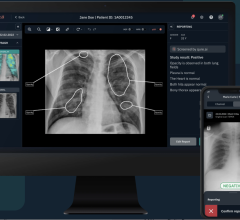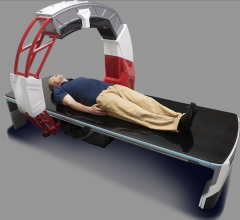June 27, 2007 - Imaging Diagnostic Systems Inc. announced the release and publication of select results highlighting the advantages of using CT laser breast imaging as an adjunct to conventional mammography to improve detection of occult cancers in dense breasts.
"These CTLM results are being released as a response to the growing number of requests for performance statistics received from distributors and prospective customers worldwide. The results were obtained from our initial PMA-designed clinical study," commented Tim Hansen, IMDS Chief Executive Officer.
"The findings are quite positive," stated Eric Milne, MD, IMDS Director of Clinical Research. "The study, from four sites in North America, involving 705 breasts of 515 patients, biopsied in 451 cases, was scientifically rigorous. It demonstrated that, in a dense breast population, the adjunctive use of CTLM, classifying DCIS as malignant, increased sensitivity from 50.0 to 58.3% over mammography alone and improved specificity from 75.5 to 86.8%. When DCIS is classified as pre-malignant, the figures changed slightly, increasing sensitivity from 43.8% to 56.2% over mammography alone and improving specificity from 73.6% to 84.4%. The difference between the two sets of results reflects, we believe, that the pathologically 'benign' form of DCIS shows angiogenesis in only 30% of cases, whereas comedocarcinoma shows angiogenesis in 75%, an observation that that might prove useful for stratifying DCIS for treatment purposes. One of the more remarkable results of using CTLM as an adjunct was that specificity also improved along with sensitivity, reducing the negative biopsy rate."
Hansen added, "The combination of these results, plus the publication of CTLM research results in the peer-reviewed journal Investigative Radiology and routine clinical use results in the Egyptian Journal of Radiology, should provide confidence in the clinical merits of our technology. We have also completed over 9,000 CTLM breast studies in various global sites. We believe that releasing these results will reinforce the clinical value of our CTLM studies until the outcome of our current US PMA study is disclosed."
Fore more information: www.imds.com


 August 09, 2024
August 09, 2024 








